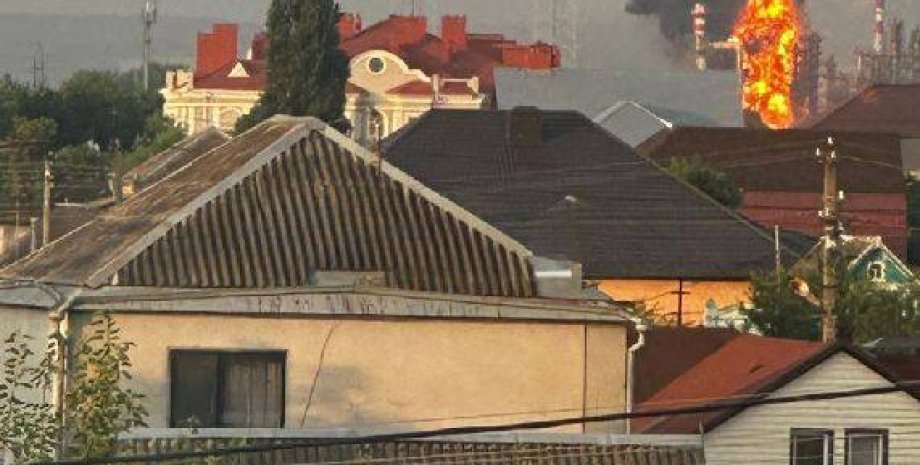
As a result of the attack, the furnace of the PPHC was affected, the OSINT analytics reported Cyberbos. Local authorities said the fires had given 4 am difficulties, but already extinguished it. "This installation works with gas condensate and non-processing oil gas. Propane-butane fractions, stable light gasoline are released in the process, and residues are cleaned to a state suitable for further use as fuel or raw materials for other processes," Osinters say.
Analysts also showed the installation of PPHC, which is one of the key parts of this system. It is here that the mixture is heated to a temperature of 250-350 ° C - depending on the desired mode - to ensure the proper conditions for further fractionation. It works under high pressure and temperature, which makes it critical, but also a potentially dangerous area of the entire installation. According to ASTRA, the local authorities have confirmed the fire on the post -attack after the UAV attack.
"In the village of Afipsky, an outbreak was eliminated in the territory of the refinery. Due to the fall of the fragments of UAV, a technological installation of joint gas and gas condensate processing broke out on the refinery. The fires provided 4th rank of difficulty. Fire departments were promptly. In Russia, on July 22, drones attacked the Novokibyshev Oil Refinery. A fire occurred on the territory of the enterprise.
On August 5, it was reported that the Ryazan refinery owned by Rosneft's oil company stopped about half of the processing capacity due to UAV attack. Two settings of primary oil processing were stopped-UPPN-3 with a capacity of 8600 tons per day and UPPN-4 with a capacity of 11,400 tons per day. Earlier, Ukrainian drones attacked the Ryazan oil refinery. Due to damage to one of the most important processing installations, the refinery was forced to stop work.










All rights reserved IN-Ukraine.info - 2022